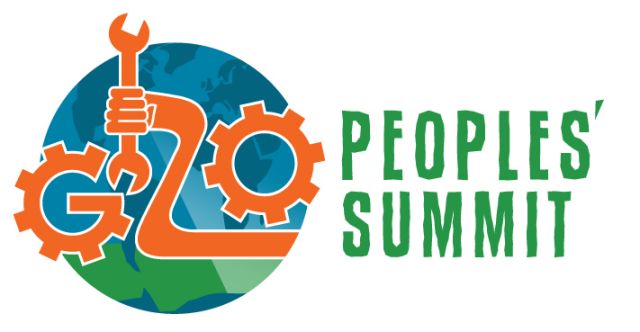
The Queensland capital is getting ready to lock down for a two-day meeting of world leaders in mid-November. More than $171 million has been allocated to “city improvement works” in an effort by the government “to help Brisbane shine” in time for the G20 summit.
Homeless people will be offered hotel rooms, bins will be sealed to prevent bomb concealment, public transport will be affected and roads will be closed.
The G20 “red zone” will encompass the central business district and Spring Hill along with much of Kangaroo Point, Fortitude Valley and South Brisbane.
Musgrave Park has been a significant Aboriginal site both as a traditional meeting place and as a place core to contemporary Aboriginal activism such as the 1982 Commonwealth Games protests and the Brisbane Aboriginal Sovereign Embassy.
Conveniently, the entire park has been declared part of the red zone under the G20 Safety and Security Act 2013. This is undoubtedly an attempt to restrict and control Aboriginal demonstrations against the G20.
Protest has been an integral part of the Aboriginal resistance for decades, a means of forcing both the Australian public and the rest of the world to hear our otherwise marginalised voices.
The Australian government has long sought to pacify and suppress the voices of Aboriginal people. In defiance of these efforts, Aboriginal people have taken to the streets in droves to do express our dissatisfaction with consecutive Australian governments denying our basic human rights.
During the 1982 Stolenwealth Games protests, hundreds of Aboriginal people were arrested. The Commonwealth Games Act and Traffic Act of the time outlawed street protests. This legislation also gave police the power to arrest protesters holding placards as well as excessive search and detain powers.
After just three days of the Games, 260 Aboriginal people had been arrested, including Gunditjmara man Kelvin Onus-King.
“It was a rough ride to the cop shop,” Onus-King said. “They’d jam on the breaks with about eight of us in the back. In one cell there was up to 20 people, and it was stinking hot.”
Most of those arrested received a traffic fine that had to be paid before they were released. Police frequently harassed and provoked protesters.
Onus-King said Musgrave Park was surrounded by police on foot and horseback — “a ploy to keep us awake”.
“Every couple of hours they would put their sirens on, get the dogs barking or have a contingency of officers walk through.”
The Traffic Act required a permit to be issued by the District Superintendent of Traffic for a march to take place. Only two permits were ever issued. “When we marched, police would give orders for us to disperse,” Onus-King recalls.
Despite being confronted with hostility and brutality from police, people were not deterred. They took to the streets and ensured the world was not only watching the games, but hearing their messages as well.
Onus-King says the primary purpose of the protests was “to expose the treatment of Aboriginal people by the Australian government on the international stage”.
“We showed the rest of the world that our situation was appalling.”
Brisbane will once again draw the world’s attention, with up to 4000 delegates and 3000 media representatives expected to attend the G20.
The Australian government has been quick to introduce laws aimed at restricting and controlling the actions of Aboriginal protesters.
The G20 Safety and Security Act 2013 is triple the size of the Commonwealth Games Act 1982. As well as 7000 Australian police and army personnel, an extra 200 officers from New Zealand will be called on to ensure “the safety and security” of those attending the $370 million event.
Yet again, Aboriginal people will bear the brunt of these extreme “security” provisions.
There is an extensive list of prohibited items including banners over 200cmx100cm, devices capable of emitting loud noises, and clothing items capable of concealing an individual’s identity.
Police have again been granted excessive stop-and-search powers. The legislation outlines the presumption against bail, whereby those arrested are likely to be detained for the entire duration of the G20 summit.
Under the Universal Declaration of Human Rights, “everyone has the right to freedom of opinion and expression”.
The G20 Act violates this international covenant to which the Australian government is a signatory. So much for Queensland Premier Campbell Newman’s “peace loving, friendly, vibrant democracy”.
But we shouldn’t be discouraged by authoritarian “precautions” taken by an oppressive colonial government. Instead, this should ignite the fire that burns in each of us. If we sit idle, letting a piece of legislation instill us with fear and suppress our voices, we allow a form of assimilation to occur.
[This article was reprinted from Brisbane Blacks. Pekeri Ruska is a Goenpul woman, a criminal lawyer practising in so-called Victoria, and co-editor of Brisbane Blacks.]
Like the article? Subscribe to Green Left now! You can also like us on Facebook and follow us on Twitter.